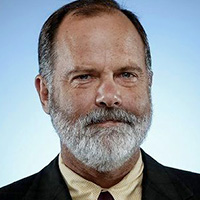IN 1963, POLITICAL SCIENTIST RICHARD HOFSTADTER called attention to a thick strand of anti-intellectualism that was threaded through the American national fabric. Commerce and business, he argued, exerted such a profound influence in this country that they tended to overwhelm intellectual inquiry, even discrediting it. To some, intellectuals represented a snobby elite, while the real work of America was done by virile businessmen.
Moreover, these were entrenched forces, deeply at work within the republic from the beginning. Hofstadter observed that the intellects of Hamilton, Adams and Washington gave way to the “native strength of mind” of Andrew Jackson, “the primitivist hero” who scorned intellectualism in favor of brutish authority.
It hardly needs saying that those forces have outlived Jackson. They are powerfully at work today, and their gathering strength poses troubling challenges for a nation grappling with conflict and division. What happens to the capacity to grow when the foundations of knowledge itself have become the objects of dispute?
It’s tempting to see this as something new — presentism is a distortion that many generations have suffered. But Hofstadter’s work, Anti-Intellectualism in American Life, which was awarded the Pulitzer Prize, reminds us that these are not new problems, just new iterations of old ones.
What makes this conflict — between intellectualism and its foes — particularly difficult in this moment is that the solutions to so many of society’s problems require scientific or intellectual guidance. The climate will not cool down merely because we wish it would, nor will babies fend off historic scourges such as polio or measles because it would be nice if they could. Science denial also distorts social policy: Should the nation resist immigrants because they bring crime and danger, or welcome them because they add vibrancy and dynamism? Before crafting a policy to address that question, it is helpful to know whether it is true that immigrants do, in fact, commit a disproportionate amount of crime. And how will we know if Americans are pleased with their nation’s direction or its leadership if we refuse to consult polls because they, too, are tools of the elite and not to be trusted.
Academics and other intellectuals are not always their own best advocates in this conversation. Their commitment is to honest neutrality, not self-defense. And when they do argue for themselves and their work, their pleas can sound self-serving. But to insist that they remain silent on these questions is to concede the field; the nation suffers if those who think most deeply retreat to the sidelines.
With this issue of Blueprint, we examine debates where science and facts are under attack — not to defend what should need no defending, but rather to explore the reasons some refuse to accept the truth and the ramifications of their unwillingness to do so. As with all our work, we hope it inspires conversations. It is a fond, if increasingly desperate, dream for people of divergent views to agree at least on common facts. In this case, our hope for discussion comes with another desire — a recognition that knowledge is not grist for debate; it is the predicate for it. As Hofstadter wrote, “Intellect is neither practical nor impractical; it is extra-practical.”
This is Blueprint’s 10th issue. We’re marking that milestone with a few changes and additions to the magazine we’ve been building over the past five years. We have new features. Rick Meyer’s “A Lighter Look” column, which has been appearing on our web pages, debuts in print. And we have introduced “Special Report,” which in this issue takes a look at Long Beach as a microcosm of communities confronting the real-life consequences of climate change. I am pleased also to say that this issue of Blueprint is our largest in terms of articles, topics and pages, and it is being delivered to an ever-growing number of readers.
Our features are evolving, but our goals are unchanged: to explore the questions confronting society and to present and explain the research that helps to better understand them. There has never been a more important time for this work.
























